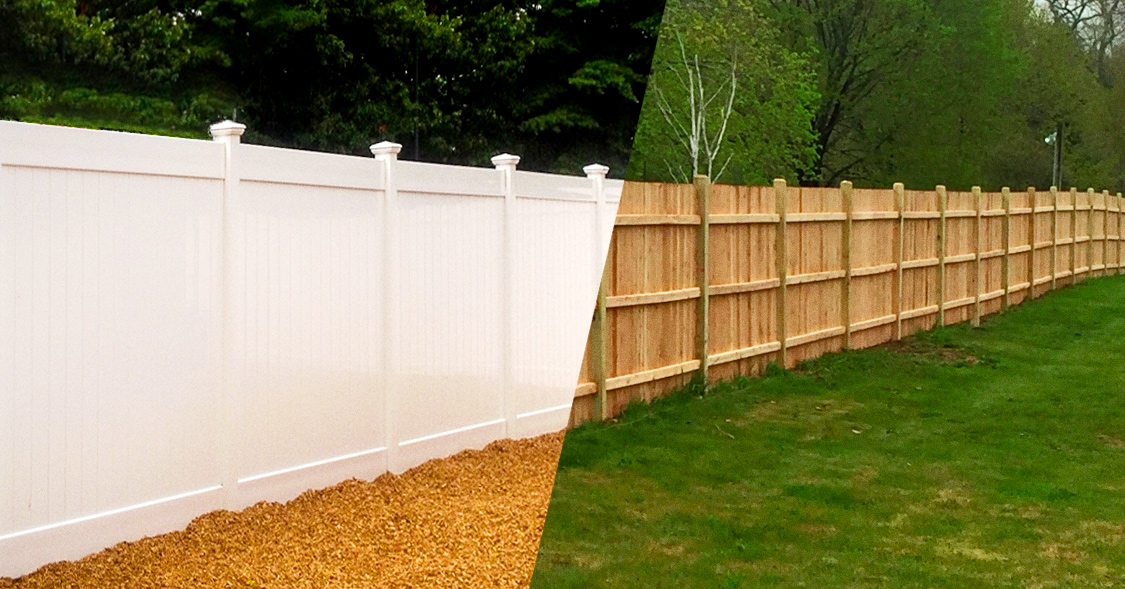
When planning to install a custom fence around your property, one of the first and most crucial decisions you’ll make is choosing the right material. Among the most popular options available are wood and vinyl, each offering its own set of benefits and drawbacks. Whether your primary concern is durability, aesthetics, maintenance, or cost, comparing these two materials side-by-side can help you make a more informed choice for your fencing project.
Understanding Your Custom Fence Needs
Before diving into the pros and cons of wood and vinyl, it’s important to consider what you want out of your custom fence. Are you aiming for a classic look, or is long-term durability more important? Do you prefer a natural aesthetic or a modern one? Your specific goals, budget, and climate conditions will heavily influence the right material for your fence.
The Appeal of Wood Fencing
Wood is a traditional fencing material known for its timeless beauty and versatility. It has been used for centuries and remains a favorite due to its natural appearance and design flexibility.
Pros of Wood Fencing:
- Aesthetic Versatility: Wood fences can be painted or stained in virtually any color to match your home’s exterior. They also come in various styles like picket, privacy, split rail, and more.
- Customizability: Wood allows for easy modification and customization, ideal for homeowners wanting a personalized look for their custom fence.
- Eco-Friendly: Wood is a renewable resource and biodegradable, making it a more environmentally friendly option if sourced responsibly.
Cons of Wood Fencing:
- Maintenance Intensive: Wood is susceptible to rot, pests, and weather damage. It requires regular staining, sealing, or painting to maintain its appearance and integrity.
- Shorter Lifespan: Even with proper maintenance, wood typically lasts 10–15 years, depending on the type of wood and environmental conditions.
- Prone to Warping: Moisture and extreme weather changes can cause wood to warp, crack, or split over time.
The Advantages of Vinyl Fencing
Vinyl fencing is a modern alternative that offers a clean look and low-maintenance appeal. It’s made from PVC (polyvinyl chloride) and is often used for residential and commercial fencing alike.
Pros of Vinyl Fencing:
- Low Maintenance: Vinyl never needs to be painted or stained. It’s easy to clean with soap and water and is resistant to pests and decay.
- Durability: Vinyl fences can last 20–30 years or more without fading, cracking, or warping. It stands up well to harsh weather and UV exposure.
- Consistent Appearance: Vinyl maintains a clean, uniform look over time, making it ideal for homeowners who prefer a sleek and polished custom fence.
Cons of Vinyl Fencing:
- Higher Upfront Cost: Vinyl fencing is typically more expensive initially compared to wood. However, the lower maintenance costs may offset this over time.
- Less Natural Look: While vinyl comes in a range of colors and styles, it doesn’t have the authentic look or feel of natural wood.
- Limited Repair Options: If a vinyl panel gets damaged, it often needs to be replaced entirely, unlike wood which can often be patched or repaired in sections.
Durability and Climate Considerations
Your local climate plays a significant role in determining which material is best suited for your custom fence. Wood may not fare well in damp, rainy environments unless it’s pressure-treated or rot-resistant. On the other hand, vinyl holds up well against moisture and UV rays, making it a better choice for humid or sunny regions.
In cold climates, however, vinyl can become brittle and more prone to cracking under heavy impact or freezing temperatures, while certain types of wood can expand and contract naturally without significant damage.
Cost Comparison Over Time
While wood fencing may cost less initially, the long-term maintenance expenses—such as repainting, sealing, and potential repairs—can add up. Vinyl’s upfront investment is higher, but its long lifespan and minimal upkeep can make it more cost-effective over time.
When budgeting for a custom fence, consider not only the price of materials but also installation fees, ongoing maintenance, and expected lifespan. Choosing a material based solely on initial cost may lead to higher expenses in the long run.
Making the Final Decision
Ultimately, the choice between wood and vinyl for your custom fence depends on your priorities. If you value a natural, customizable look and don’t mind regular upkeep, wood might be the right fit. If you prefer a long-lasting, low-maintenance option with a clean appearance, vinyl could be the better choice.
